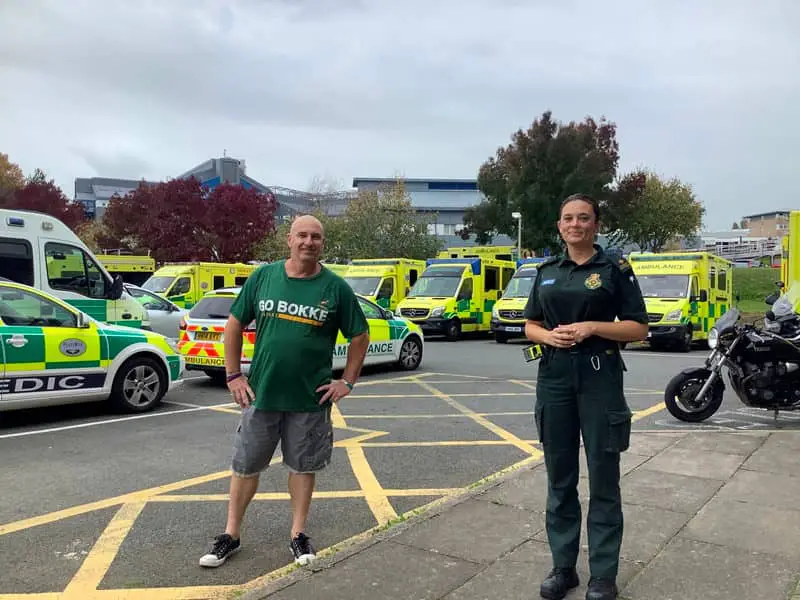Thanks to basic life-saving skills, Paul Gould is alive and celebrating his 55th birthday and giving thanks to the people that came quickly to his aid.
During the week of national Restart a Heart Day, Paul, 55 from Ryde, recalls the moment he suffered a heart attack and went into cardiac arrest whilst swimming at Gurnard Pines earlier this year.
Paul said,
“I was very fortunate that the lifeguards were trained in CPR (Cardio Pulmonary Resuscitation) because I don’t know what would have happened if I had been at home with nobody to assist me.
“The last thing I remember is a massive pain in my chest and trying to get to the side of the pool to alert the lifeguards. The next thing I was waking up in hospital two days later blissfully unaware of everything that had gone on.
“I was told it was a bit of a miracle and that I was extremely lucky but I think it was more the expertise of the Ambulance responders and the lifeguards that I am around today and I am incredibly thankful to them.”
Performing CPR could be difference between life and death
This year in support of Restart a Heart Day on Friday 16th October we are encouraging people of all ages to learn basic life support skills and not to be afraid get hands on and give Cardio Pulmonary Resuscitation (CPR) to help save a life.
Walker: 80% of out of hospital cardiac arrests happen in the home
Louise Walker, IOW NHS Trust Ambulance Education, Training and Engagement Lead said,
“This week we were very privileged to reunite Paul with some of his rescuers after he made a remarkable recovery from his cardiac arrest. Early CPR undoubtedly helped to save Paul’s life and it is wonderful to see him well and able to continue to enjoy life. This is the outcome that we would want for everyone who sustains a cardiac arrest.
“80% of out of hospital cardiac arrests happen in the home and with increased numbers of people staying home, it may be a loved one you are called on to help so learning and performing CPR could be the difference between life and death for a family member, a colleague at work, or a stranger in the street.
“Don’t be afraid to give CPR, get hands on and do your best before the paramedics arrive as it can save someone’s life.”
How to perform Cardio Pulmonary Resuscitation (CPR)
When someone collapses and stops breathing normally, it is important to quickly call 999, perform hands-only CPR and use a defibrillator. Hands-only CPR reduces your risk of catching an infection.

In light of COVID-19, the steps you should take when performing CPR have changed but the need to perform CPR has not.
- If someone is collapsed and not breathing normally, do not put your face next to theirs
- Call for an ambulance
- Use a towel or piece of clothing and lay it over the mouth and nose
- Do not do mouth to mouth
- Start chest compressions to the tempo of “Stayin’ Alive”
- Use a Public Access Defibrillator if available
Find out more
Further information about Cardio Pulmonary Resuscitation is available online, including a video that explains the steps you should take if you see someone in cardiac arrest.
News shared by Isle of Wight NHS Trust. Ed





